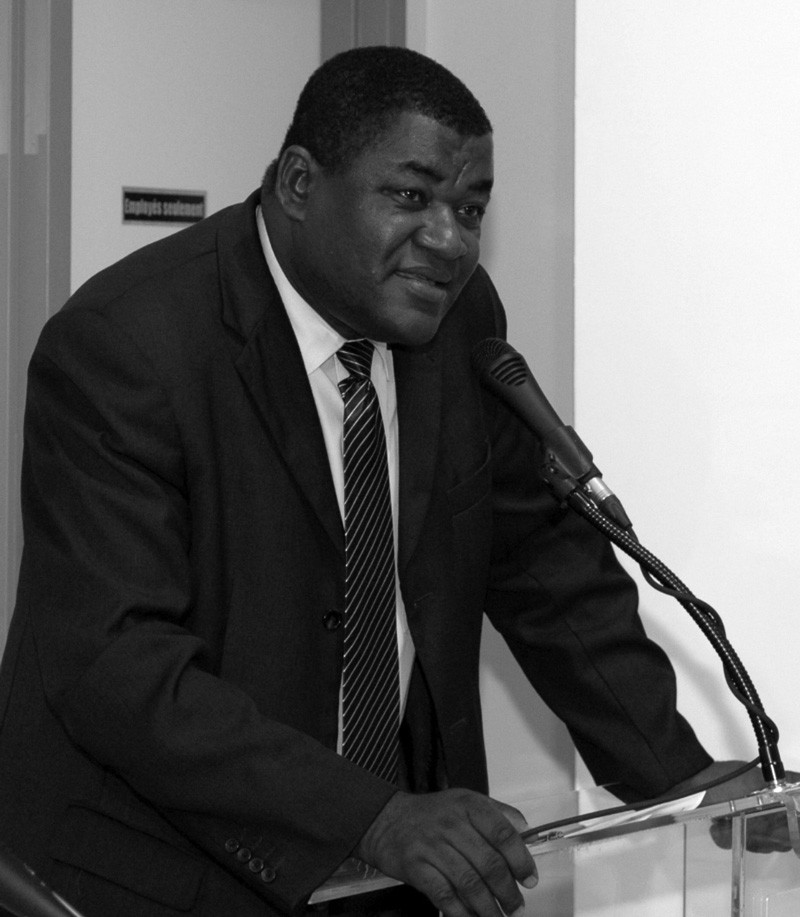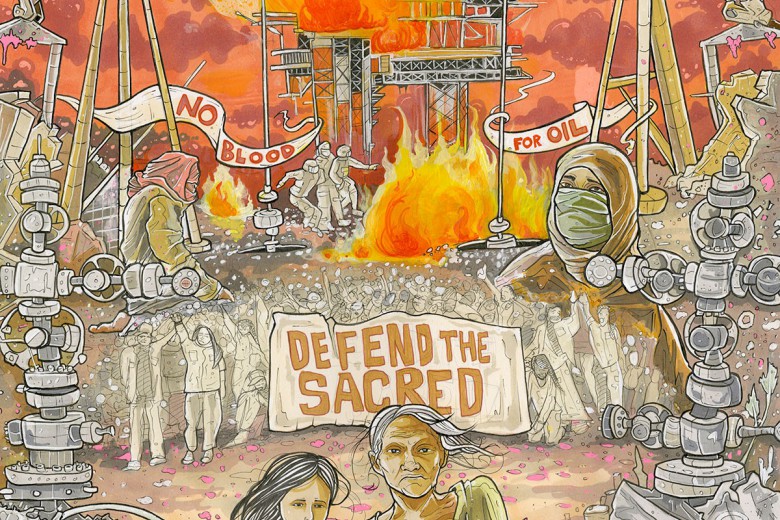
Trade union activists in Canada have initiated a project to deepen ties of solidarity with the people of Haiti and popular Haitian organizations. The Haiti Union Solidarity Fund was launched in January of this year by union members in the Canada Haiti Action Network. To date, more than $10,000 has been received from more than a dozen trade unions, solidarity organizations and individuals.
The Haiti Union Solidarity Fund has initiated three projects. First, starting in January of this year, the fund began sending a monthly contribution of $400 to the Confederation of Haitian Workers (CTH), which allows for the hiring of an administrative staff person.
Second, the fund purchased $3,700 of electrical generating equipment for the CTH that now powers a computer centre at the union’s headquarters in downtown Port-au-Prince. The centre serves the union federation’s needs and also houses a revenue-generating Internet café serving the local neighbourhood.
Lastly, in July, the fund began contributing $200 a month to the Association of Health Professionals of Haiti. This is a group of nurses who work with the national transport union of Haiti, APCH, to provide desperately needed health care to union members and others in rural regions outside the capital city, Port-au-Prince. The group’s work took on a new urgency in August when Haiti was slammed by a succession of three hurricanes and one tropical storm, leaving hundreds of thousands homeless and with scarce food, water and health treatment.
Strengthening popular organizations
The Haiti Union Solidarity Fund is responding to desperate needs in Haiti. Next to no economic investment is coming into the country, and foreign aid is entirely inadequate. Unemployment is near total. No meaningful improvements to education, health care and civic services have been forthcoming from the big powers – the U.S., France, and Canada – who participated in the overthrow of Haiti’s elected government in February 2004. By all accounts, the country has never been in worse shape. As if this were not enough, the recent storms have set the country back even further.
In addition to helping make improvements in Haiti, organizers of the fund are hoping that it will also raise awareness about Haiti’s situation in Canada. “The central goal of our solidarity network is to create awareness among the Canadian public about the situation in Haiti and the Canadian government’s responsibility for the crisis there,” says Kevin Skerrett of the Ottawa Haiti Solidarity Committee/Kozayiti and the Canada Haiti Action Network.
“But visits to Haiti by members like myself,” Skerrett continues, “remind us also that the trade unions and other popular organizations there have next to no material resources with which to work. We want to assist these organizations to survive and grow.”
The Canada Haiti Action Network agrees with progressive Haitians who believe that if the country’s downward spiral is to be reversed, popular organizations in Haiti, including trade unions, must play an essential role in changing Haiti’s political and economic institutions. At the same time, Skerrett emphasizes, “We are very conscious of avoiding any relations of dependence.”
As evidenced by the 2006 presidential election that elected René Préval, Haitians want a return to the kind of progressive social programs the overthrown government of President Jean-Bertrand Aristide was committed to supporting. One lesson learned from the experience of the past 28 years, since the overthrow of the Duvalier family dictatorship, is that meaningful change must be led not only from above, but also from below.
Skerrett says, “The mass protests earlier this year against hunger and rising food prices were a reminder to the foreign occupiers, today comprising some 10,000 police and soldiers, that the Haitian people will not take their conditions of extreme poverty lying down. Change must happen. It will happen.”
Despite sharp declines in active union membership, Haiti’s unions remain an important force in the country. The APCH union closed down transport for two days in June 2007 to protest rising fuel prices and arbitrary treatment of workers at the hands of police and government officials. Unions are demanding that the elected government and foreign occupation forces tackle the country’s calamitous economic situation. They want investments in agriculture and industry, radical improvements to social services, and improvements to the country’s transport, electrical and communications infrastructure. They’re also asking the state to double the country’s minimum wage, currently at less than $2 per day.
Unions have been protesting the government’s recent privatization decisions. Thousands of workers have lost their jobs to privatization at the state-owned telephone company and shipping ports. Thousands of other public sector jobs were axed in the violent and chaotic two years that followed the 2004 overthrow of Aristide.
Growing concern in Canada
Interest and concern about Haiti was evident at the Canadian Labour Congress convention in Toronto in May of this year. One of the invited guests to the convention was Paul Chery, Secretary-General of the Confederation of Haitian Workers. Chery was able to meet and speak to dozens of delegates at convention events and parallel forums. The CLC is itself a contributor to the Haiti Union Solidarity Fund.
Attention to Haiti has also been growing in Quebec, where more than 80,000 people of Haitian origin reside. In January of this year, a delegation of leaders of the Quebec Federation of Labour (FTQ) travelled to Haiti. The unionists met with representatives of most unions in the country and heard first-hand accounts of the devastating consequences of the economic programs of privatization and deregulation being imposed upon Haiti by international financial institutions and the big three powers that intervened in February of 2004.
Achievements of Aristide and Lavalas
The FTQ delegation visit to Haiti highlights a challenge that has stood in the way of solidarity with the Haitian people across Canada and in Quebec. Following the lead of NGOs and the Canadian government agency Rights & Democracy, which strongly opposed the reform programs of Jean-Bertrand Aristide’s government, many of Quebec’s trade unions were indifferent to, and even supportive of, the calls by Haiti’s elite for the overthrow of Aristide. They remained silent during the two-year regime of human rights violations that followed the coup.
It is to be hoped that the FTQ and other unions in Quebec will set aside their anti-Aristide prejudice and recognize that the ideals of the former president’s Lavalas political movement still represent the will of the majority of the Haitian people.
The role of the Canadian government in creating poverty and misery in Haiti, as in Palestine, creates a special responsibility for Canadian trade unions and popular organizations to speak out and act in solidarity with the people of this beleaguered country. The Haiti Union Solidarity Fund and other programs like it offer a means for Canadians to express that needed solidarity.
The fund’s directors are now making plans for a multi-union delegation to travel from Canada to Haiti this winter to meet with and learn about the country’s popular organizations and to demand accountability from the Canadian government and media for their seeming indifference to suffering in Haiti.
Roger Annis is a director of the Haiti Union Solidarity Fund in Vancouver, B.C., and a coordinator of the Canada Haiti Action Network. In August, 2007, he travelled to Haiti on a two-week human rights investigative delegation.






